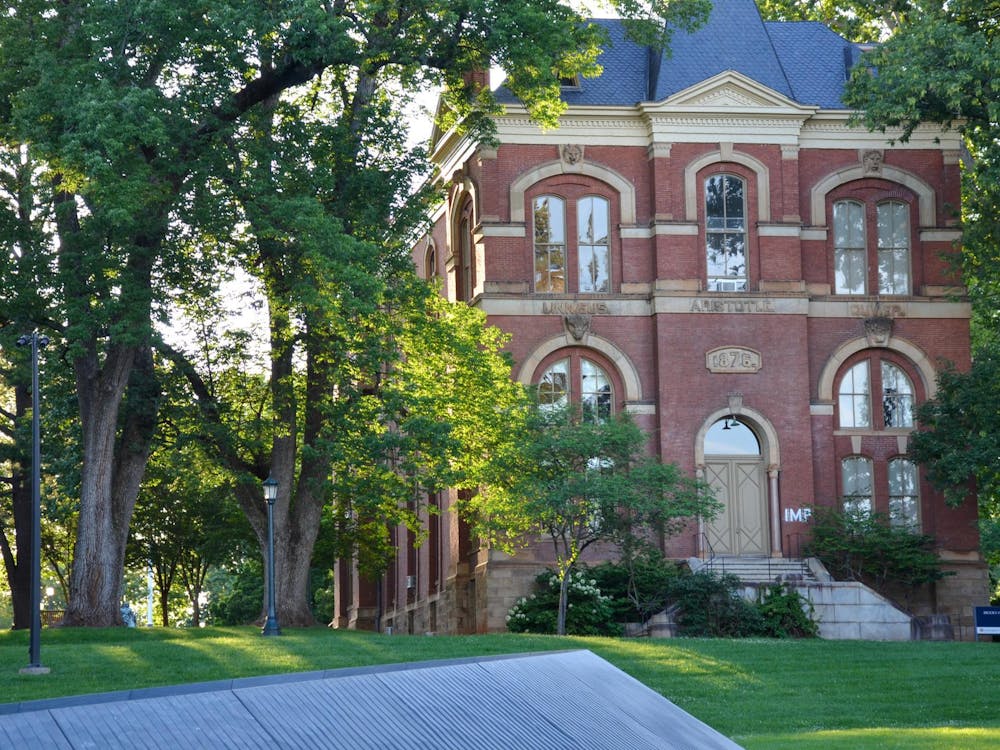In an effort to increase undergraduate research opportunities at the University, the Faculty Senate yesterday recognized the 25 undergraduate winners of this year's David A. Harrison III Awards in the Rotunda Dome Room.
Each student will receive from $1,880 to $3,000 for specific research projects, and their faculty mentors each will receive $1,000.
University President John T. Casteen III gave the keynote speech at the ceremony.
In his speech Casteen explained the purpose of the trust fund created by Harrison, a 1939 College graduate and a 1941 Law School graduate.
"Mr. Harrison set up a trust to bring faculty and students in direct contact -- [he and his wife] were interested in what we could do to advance" relations between faculty and students, Casteen said.
Casteen also praised the award recipients' work as "right at the core of what [Harrison] wanted to do."
The Office of the President agreed to use this year's portion of the Harrison trust to support undergraduate research endeavors after a request from the Faculty Senate.
The students had to submit a short plan for their proposals by Dec. 1, and were notified of their awards Jan. 15. They can begin their projects this semester and must finish by the end of this summer.
Faculty Senate Chairman David T. Gies said the Senate committee that chose the 25 recipients from a pool of 157 candidates had "excellent" submissions and had a difficult time making their selections.
"You undergraduates are a dazzling lot," Gies said. "To have the opportunity to focus on the intellectual creativity that you have is very exciting."
Robert M. Grainger, Senate Research and Scholarship Committee chairman, read some of the comments he had received from the award recipients through e-mail.
"Not only is it a big boost, financially or otherwise, it indicates an uplifting confidence in undergraduate research," one student wrote to Grainger.
Gies said the opportunity to delve into such study is a remarkable opportunity for undergraduates.
"It's a totally original idea to focus University money on [fostering] the depth and creativity of students," Gies said. "We like to think our teaching stimulates [University students] -- to bring a faculty mentor and creative students together, with money" is very positive.
Some of the winners presented detailed descriptions of their projects.
Third-year Education student Jennifer Johnson described research plans for her project, entitled "Investigation of the Recruitment of Minorities into the Teaching Profession."
Johnson said her selection for the program demonstrated that "there are University members who see the lack of minority teachers as a serious and urgent crisis."
Third-year College student Melissa Grieves, whose project is entitled "Orientis Fideles: On the Eastern Catholic Churches in America," said she hopes the awards will "spawn more research in the future."
Grieves said she would not have been able to conduct research related to Eastern Catholic churches, which are a part of her heritage, without the monetary assistance of the awards.
Second-year College student Jennifer R. Cortese is going to Kenya "to study the difficulties of implementing a western system of medicine into a third-world country," Cortese said.
Some Kenyans "don't think something is wrong [when they are sick] -- they think it is a spirit," she said. "The award can help, not only for me to observe, but to assist" medical personnel there.
She added that she is planning on spending eight weeks in Kenya this summer to complete her project.






